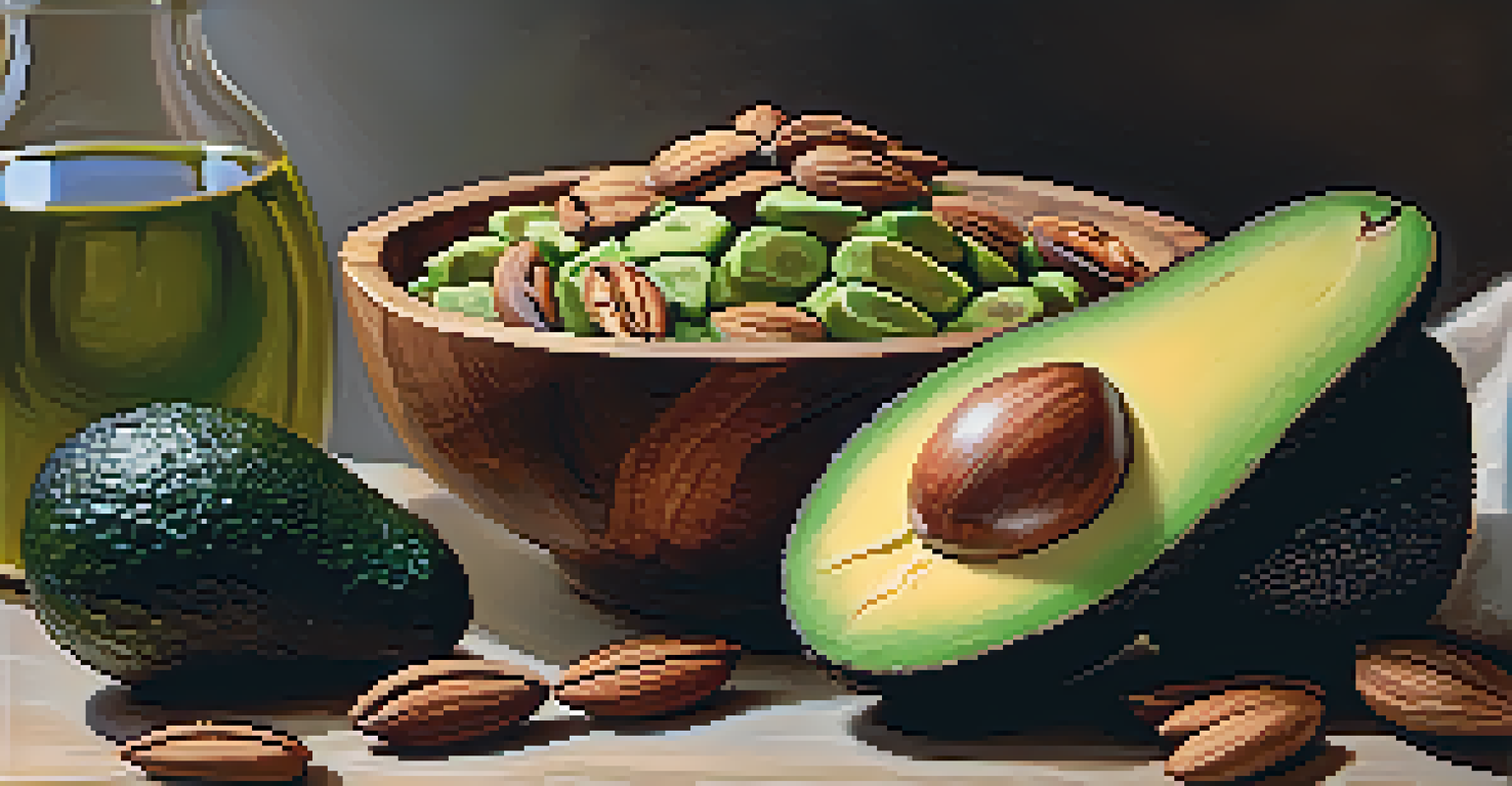How to Build Immunity Through a Balanced Diet

Understanding Immunity and Its Importance for Health
Immunity is our body's defense system, protecting us from illnesses and infections. It’s like having a security team that detects and neutralizes threats before they can cause harm. When our immune system is strong, we’re less likely to get sick, recover faster when we do, and generally feel more energetic.
Let food be thy medicine and medicine be thy food.
A balanced diet plays a crucial role in supporting this immune function. Just as a car needs the right fuel to run smoothly, our body requires specific nutrients to bolster its defenses. By prioritizing the right foods, we can ensure our immune system is always ready to fight off invaders.
In essence, understanding the link between immunity and diet empowers us to make healthier choices. By being mindful of what we consume, we can take proactive steps toward maintaining our health and well-being.
Key Nutrients That Support Immune Function
Certain nutrients are particularly beneficial for immune health, including vitamins C, D, and zinc. Vitamin C, found in citrus fruits and leafy greens, is known for its role in boosting white blood cell production. Meanwhile, vitamin D, which we can get from sunlight and fortified foods, helps activate our immune defenses.

Zinc is another powerhouse nutrient that promotes immune cell function and is abundant in meats, shellfish, legumes, and seeds. Incorporating a variety of these nutrients into our diet can create a synergistic effect, enhancing our overall immunity. It’s like assembling a dream team where each player brings a unique strength to the game.
Immunity: The Body's Defense System
A strong immune system protects us from illnesses, allowing for quicker recovery and enhanced energy.
By focusing on these key nutrients, we can provide our immune system with the essential tools it needs to effectively combat pathogens. A well-rounded approach ensures that we’re not just targeting one area but creating a comprehensive support system.
Incorporating Fruits and Vegetables into Your Diet
Fruits and vegetables are the cornerstones of a balanced diet, packed with vitamins, minerals, and antioxidants. Think of them as nature's multivitamins, offering a range of nutrients that work together to enhance our immune responses. Colorful produce like berries, oranges, and greens not only adds variety to our plates but also maximizes our nutrient intake.
The first wealth is health.
Aiming for a rainbow of colors ensures that we’re getting a wide array of phytochemicals, which are plant compounds that contribute to health. For example, beta-carotene in carrots and lycopene in tomatoes are known for their immune-boosting properties. Incorporating these foods into our meals can be as simple as adding a side salad or smoothie.
Making fruits and vegetables a regular part of our diet doesn’t have to be daunting. Experimenting with different recipes and cooking methods can keep things exciting and help us discover new favorites that nourish our bodies.
The Role of Healthy Fats in Immunity
Healthy fats, such as those found in avocados, nuts, seeds, and fatty fish, are vital for immune health. These fats help our body absorb fat-soluble vitamins like A, D, E, and K, which play important roles in immune function. Think of healthy fats as the glue that holds our nutrient intake together, ensuring everything works in harmony.
Omega-3 fatty acids, particularly found in fish like salmon and flaxseeds, have been shown to reduce inflammation, which is crucial for a well-functioning immune system. Inflammation can be a double-edged sword; while it’s necessary for the immune response, excessive inflammation can lead to health issues. Thus, balancing our fat intake is essential.
Key Nutrients for Immune Support
Vitamins C, D, and zinc are essential nutrients that boost immune function and help combat pathogens.
Incorporating these healthy fats into our meals can be as simple as drizzling olive oil over a salad or snacking on a handful of nuts. Small changes can lead to significant benefits for our immune health.
Hydration: The Unsung Hero of Immune Support
Staying hydrated is often overlooked when discussing immunity, but it plays a critical role in overall health. Water helps transport nutrients to cells, flush out toxins, and maintain bodily functions. Imagine hydration as the oil that keeps the engine of our body running smoothly; without it, everything can grind to a halt.
Dehydration can lead to fatigue and hinder our immune responses, making it easier for infections to take hold. It’s essential to drink enough fluids throughout the day, whether through water, herbal teas, or hydrating foods like cucumbers and oranges. Keeping a water bottle handy can serve as a gentle reminder to sip regularly.
By prioritizing hydration, we take a simple yet powerful step toward supporting our immune system. It’s a small habit that can yield significant health benefits.
The Impact of Processed Foods on Immunity
Processed foods often contain high levels of sugars, unhealthy fats, and additives that can negatively impact our immune system. These ingredients can promote inflammation and disrupt our gut health, which is closely linked to immunity. Think of processed foods as a storm cloud; while they may seem convenient, they can obscure the sunshine of health.
In contrast, whole foods—those that are minimally processed and closer to their natural state—provide the nutrients our bodies crave. Choosing whole foods over processed options can lead to a stronger immune response and overall better health. It’s about making informed choices that align with our wellness goals.
Hydration Boosts Immune Health
Staying hydrated is crucial for optimal immune function, as it aids in nutrient transport and toxin removal.
Being mindful of what we eat can make a profound difference in how our bodies function. A few small adjustments, like swapping chips for a handful of nuts or soda for sparkling water, can have a big impact over time.
Creating a Balanced Diet Plan for Immune Health
Building a balanced diet plan that supports immunity doesn’t have to be complicated. Start by incorporating a variety of whole foods, including fruits, vegetables, whole grains, lean proteins, and healthy fats. It’s like crafting a delicious recipe; each ingredient contributes to the final dish, creating a harmonious balance.
Meal prepping can be a helpful strategy in ensuring you have nutritious options readily available. Planning meals in advance allows for thoughtful ingredient choices and saves time during busy days. Plus, it can prevent the temptation of reaching for less healthy options when hunger strikes.

Lastly, remember that consistency is key. Making gradual changes to your diet over time can lead to more sustainable habits and improved immunity. It’s all about progress, not perfection, as we work toward better health.